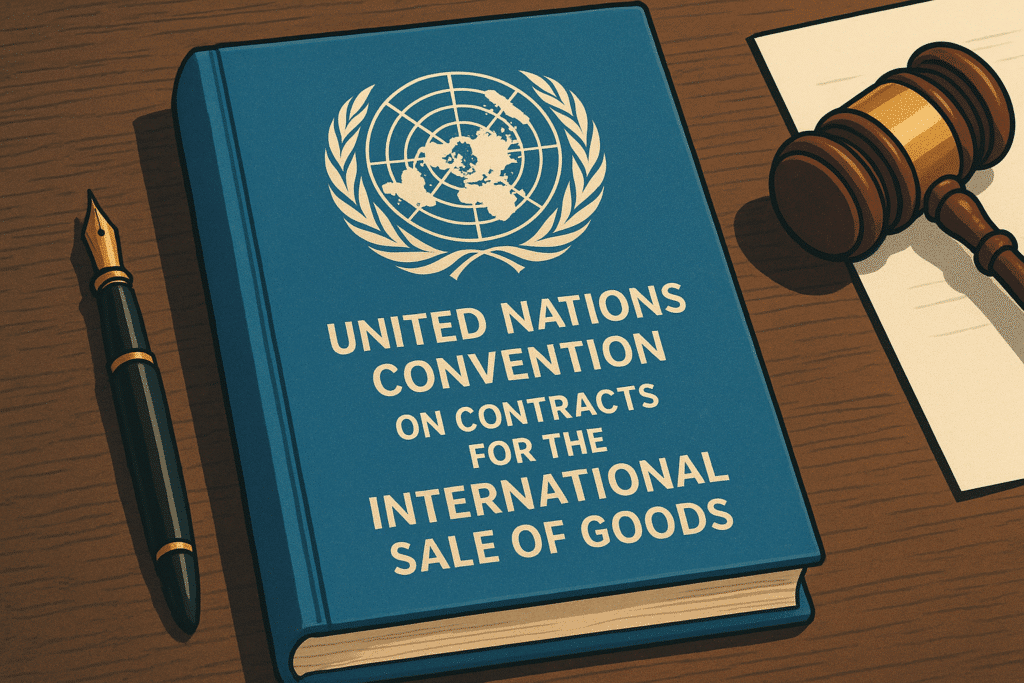Congress Amends the TVPRA to Correct Ninth Circuit’s Erroneous Ruling in Ratha
Last year, in Ratha v. Phatthana Seafood, the Ninth Circuit held that civil liability under the Trafficking Victims Protection Reauthorization Act (TVPRA) does not extend to those who attempt to benefit from forced labor. After the court denied en banc review, the Human Trafficking Legal Center and other human and workers’ rights organizations asked Congress…
Continue ReadingDrawing Inferences from CISG Opt-Outs
The United Nations Convention on Contracts for the International Sale of Goods (CISG) and the Uniform Commercial Code (UCC) both supply rules to govern contracts for the sale of goods. The UCC applies to purely domestic transactions. The CISG applies to many international transactions. When a contract involves the mixed sale of goods and services,…
Continue ReadingSupreme Court Roundup (October Term 2022)
During its 2022 Term, which ended four weeks ago, the Supreme Court decided five cases with important implications for transnational litigation. The questions included whether the Foreign Sovereign Immunities Act (FSIA) applies to criminal proceedings; the standard for aiding and abetting under the Anti-Terrorism Act (ATA); whether states may exercise general personal jurisdiction over foreign…
Continue ReadingAbitron Eliminates Circuit Tests but Causes More Confusion
During the oral argument in Abitron Austria GMBH v. Hetronic International, Inc., Justices Alito, Sotomayor, Gorsuch, and Barrett all expressed concern over whether the Court should overrule its 1952 decision in Steele v. Bulova Watch Co (1952). A reader of the Court’s majority decision by Justice Alito might be surprised to see that the majority…
Continue ReadingNinth Circuit Allows Human Rights Claims Against Cisco to Proceed
There may yet be life in the Alien Tort Statute (ATS). The Ninth Circuit recently held, in Doe I v. Cisco Systems, Inc., that Chinese practitioners of Falun Gong could go forward with claims of aiding and abetting human rights violations against Cisco Systems, which designed and built a surveillance system for the People’s Republic…
Continue ReadingThoughts on the Petitioner’s Brief in Great Lakes
In a prior post, I surveyed the facts, procedural history, and potential significance of Great Lakes Insurance SE v. Raiders Retreat Realty Co., LLC, an upcoming Supreme Court case about the enforceability of choice-of-law clauses in maritime insurance contracts. In this post, I offer some thoughts on the brief filed by the petitioner, Great Lakes Insurance…
Continue ReadingWhen Is International Law a Political Question?
In a provocative essay posted on SSRN, The Political Question Doctrine and International Law, TLB Advisor Curt Bradley looks at the historical relationship between the political question doctrine and international law, arguing that “the political question doctrine emerged in part to allow the political branches, rather than the courts, to make determinations about this country’s—and…
Continue ReadingThe End of Yet Another Era? Some Reflections on Mallory
I was a young professor of civil procedure in 1977 when the Supreme Court decided Shaffer v. Heitner. The year after that decision came down, I wrote an article titled “The End of an Era” where I predicted the eventual demise of “tag” jurisdiction. I was proven completely wrong when the Court in 1990 decided…
Continue Reading







